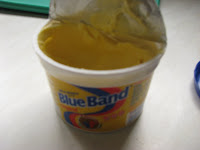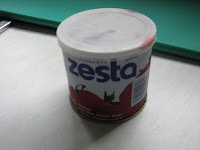Sunday, 10th May 2009-
http://www.newtimes.co.rw/index.php?issue=13891&article=3665Africa has to find its own road to prosperity
BY PRESIDENT PAUL KAGAME
At recent meetings of the Group of 20 and the International Monetary Fund, world leaders have gathered to discuss the global economic crisis. Unfortunately, it seems that many still believe they can solve the problems of the poor with sentimentality and promises of massive infusions of aid, which often do not materialise. We who live in, and lead, the world’s poorest nations are convinced that the leaders of the rich world and multilateral institutions have a heart for the poor. But they also need to have a mind for the poor.
Dambisa Moyo’s controversial book, Dead Aid, has given us an accurate evaluation of the aid culture today. The cycle of aid and poverty is durable: as long as poor nations are focused on receiving aid they will not work to improve their economies. Some of Ms Moyo’s prescriptions, such as ending all aid within five years, are aggressive. But I always thought this was the discussion we should be having: when to end aid and how best to end it.
Aid has not only often failed to meet its objectives; it has also rarely dealt with the underlying issues of poverty and weak societies. We see this with our neighbour, the Democratic Republic of the Congo. There, 17,000 United Nations peacekeepers – the largest and most expensive presence of its kind in history – treat the symptoms rather than addressing the issues of capacity, self-determination and dignity. Often, aid has left recipient populations unstable, distracted and more dependent; as Ashraf Ghani, the former finance minister of Afghanistan, has pointed out, it can even sever the relationship between democratically elected leadership and the populace.
Do not get me wrong. We appreciate support from the outside, but it should be support for what we intend to achieve ourselves.
No one should pretend that they care about our nations more than we do; or assume that they know what is good for us better than we do ourselves. They should, in fact, respect us for wanting to decide our own fate. At the same time, as I tell our people, nobody owes Rwandans anything. Why should anyone in Rwanda feel comfortable that taxpayers in other countries are contributing money for our well¬being or development?
Rwanda is a nation with high goals and a sense of purpose. We are attempting to increase our gross domestic product by seven times over a generation, which increases per capita incomes fourfold. This will create the basis for further innovation and foster trust, civic-mindedness and tolerance, strengthening our society. Entrepreneurship is the surest way for a nation to meet these goals. Michael Fairbanks’ book, In The River They Swim, which uses Rwanda as one of its examples, highlights the need to respect local wisdom, build a culture of innovation and create investment opportunities in product development, new distribution systems and innovative branding.
Government activities should focus on supporting entrepreneurship not just to meet these new goals, but because it unlocks people’s minds, fosters innovation and enables people to exercise their talents. If people are shielded from the forces of competition, it is like saying they are disabled.
Entrepreneurship gives people the feeling that they are valued and have meaning, that they are as capable, as competent and as gifted as anyone else. Asking our citizens to compete is the same as asking them to go out into the world on behalf of Rwanda and play their part. We know this is a tremendous challenge given our status as a land-locked nation emerging from conflict, with few natural resources, little specialised infrastructure and low historical investment in education. But, in fact, we have reasons to be optimistic: we have a clear strategy to export based on sustainable competitive advantages.
We sell coffee now for high prices to the world’s most demanding purchasers; our tourism experience attracts the best customers in the world and market research reveals that perceptions of Rwandan tea are improving. This has resulted in wages in key sectors rising at more than 20 per cent on an annual basis. We have cut our aid as a percentage of total GDP by half over the past decade, and last year we grew at more than 11 per cent even as the world entered a recession.
While this is encouraging, we know the road to prosperity is a long one. We will travel it with the help of a new school of development thinkers and entrepreneurs, with those who demonstrate they have not just a heart, but also a mind for the poor.
The writer is the President of RwandaCopyright The Financial Times Limited 2009
 Ginger Spice
Ginger Spice A member of the M16 (British CIA)
A member of the M16 (British CIA) Amy Whinehouse and a Bond girl
Amy Whinehouse and a Bond girl Jenny dressed as a pound of silver and I was paparazzi with the "News of the World" (the slimiest newspaper in London!)
Jenny dressed as a pound of silver and I was paparazzi with the "News of the World" (the slimiest newspaper in London!) The appropriate reaction to my picture taking.
The appropriate reaction to my picture taking. Joan Collins and Jenny
Joan Collins and Jenny

 Nice and tacky decorations!
Nice and tacky decorations! The Canadian booth
The Canadian booth The British booth
The British booth Steve and Ann enjoying all of the samples.
Steve and Ann enjoying all of the samples. Glad I got there early! (The American booth served hamburgers, hot dogs, and chocolate chip cookies)
Glad I got there early! (The American booth served hamburgers, hot dogs, and chocolate chip cookies)

























 With some help from my housekeeper Scola, each week I have an abundance of fruit from the market ...mini bananas, passion fruit, tree tomatoes, mangos, and papaya.
With some help from my housekeeper Scola, each week I have an abundance of fruit from the market ...mini bananas, passion fruit, tree tomatoes, mangos, and papaya. This makes for delicious fruit salad that I take to work.
This makes for delicious fruit salad that I take to work.
 Lunch and dinner are often served buffet-style in local restaurants (and as an option for lunch at the Embassy cafeteria). A traditional Rwandese buffet typically includes boiled beans, bananas, sweet potatoes, or cassava. Umutsima (a dish of cassava and corn), isombe (cassava leaves with Eggplant and spinach) and mizuzu (fried plantains), as well as goat or some other meat stew. Avocados are everywhere in Rwanda and are often served as salad with tomatoes and onions.
Lunch and dinner are often served buffet-style in local restaurants (and as an option for lunch at the Embassy cafeteria). A traditional Rwandese buffet typically includes boiled beans, bananas, sweet potatoes, or cassava. Umutsima (a dish of cassava and corn), isombe (cassava leaves with Eggplant and spinach) and mizuzu (fried plantains), as well as goat or some other meat stew. Avocados are everywhere in Rwanda and are often served as salad with tomatoes and onions.  Fish in Rwanda is mostly limited to tilapia and sambazas, so it is a good thing I love both. The fish is mostly raised on farms in Rwanda. Sambazas are little fried fish usually served with a tartar-like dipping sauce and you eat the whole crunchy thing- head and tail included.
Fish in Rwanda is mostly limited to tilapia and sambazas, so it is a good thing I love both. The fish is mostly raised on farms in Rwanda. Sambazas are little fried fish usually served with a tartar-like dipping sauce and you eat the whole crunchy thing- head and tail included.


 Dishwashing soap for dishes, and bleach for washing fruits and vegetables
Dishwashing soap for dishes, and bleach for washing fruits and vegetables
 Milk in a bag (which oddly lasts a really long time, not sure why)
Milk in a bag (which oddly lasts a really long time, not sure why)




 Lounging with friends,
Lounging with friends, and swimming in Lake Kivu or the pool.
and swimming in Lake Kivu or the pool.










